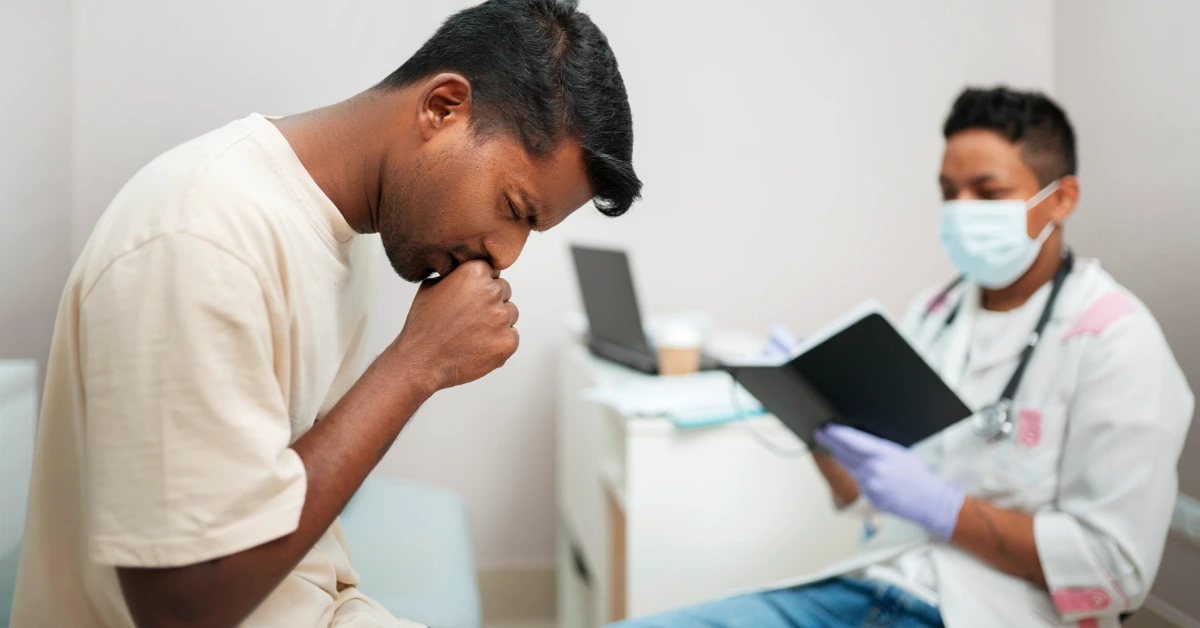Jaundice is a condition where the skin and whites of the eyes turn yellow due to excessive bilirubin in the blood. Bilirubin is a yellow pigment released when old red blood cells break down. Normally, the liver processes bilirubin, which then exits the body through bile ducts into the digestive system.
In obstructive jaundice, also called post-hepatic jaundice, a blockage prevents bilirubin from draining into the bile ducts or intestine. This blockage occurs after the liver processes bilirubin, leading to accumulation in the blood. As a result, patients develop yellow skin, eyes, and other serious symptoms.
For effective care, obstructive jaundice treatment in hyderabad. Dr. K V Dinesh Reddy, one of the leading gastroenterologists in Hyderabad, provides expert care for liver and digestive disorders, including obstructive jaundice and choledocholithiasis.
Causes of Obstructive Jaundice
Several conditions can obstruct the bile ducts and restrict bile flow, including:
- Gallstones: Hardened calcium deposits blocking bile ducts.
- Choledocholithiasis: Stones specifically in the common bile duct.
- Pancreatic Cancer: Tumors pressing on bile ducts.
- Biliary Strictures: Narrowing due to scarring or inflammation.
- Bile Duct Injuries: Surgical or trauma-related damage.
- Pancreatitis: Inflammation leading to swelling and blockage.
- Enlarged Lymph Nodes: Pressing against bile ducts.
- Bile Duct Cysts: Abnormal growths obstructing bile flow.
Symptoms of Obstructive Jaundice
Along with yellowish eyes and skin, patients may notice:
- Persistent fever
- Intense skin itching
- Upper abdominal pain
- Nausea and vomiting
- Dark urine & pale stools
- Fatigue and weakness
- Sudden weight loss
- Diarrhea and digestive discomfort
If you experience these symptoms, consult a gastroenterologist immediately.
Risk Factors
Certain conditions and lifestyle factors increase the likelihood of developing obstructive jaundice:
- Obesity and high-fat diet
- Diabetes and metabolic disorders
- Family history of gallstones
- Smoking and alcohol consumption
- Chronic pancreatitis
- Industrial chemical exposure
- Older women at higher risk
Diagnosis of Obstructive Jaundice
Doctors use various diagnostic tests to confirm the cause:
- Blood Tests: Liver function tests and CBC.
- Urinalysis: To detect bilirubin presence.
- Imaging Tests: MRI, ultrasound, or HIDA scan to identify stones or tumors.
- Endoscopy (ERCP): Both diagnostic and therapeutic.
- Biopsy: If cancer is suspected.
- Percutaneous Transhepatic Cholangiography (PTC): To assess bile duct structure.
Treatment Options
Treatment aims to relieve the bile duct obstruction and manage the underlying condition. Options include:
- Endoscopic Retrograde Cholangiopancreatography (ERCP): For stone removal and stent placement.
- Surgical Treatment: To remove tumors or bypass bile duct blockage.
- Biliary Stenting: To keep bile ducts open.
- Percutaneous Transhepatic Cholangiography (PTC): Both diagnostic and therapeutic.
- Chemotherapy & Radiation: For cancer-related blockages.
- Medications: To relieve itching, abdominal pain, and related symptoms.
Best Choledocholithiasis Treatment in Hyderabad
Choledocholithiasis is a condition where gallstones are lodged in the common bile duct, causing severe obstruction. Symptoms may overlap with obstructive jaundice, including abdominal pain, fever, jaundice, and nausea.
Dr. K V Dinesh Reddy specializes in endoscopic and minimally invasive treatments for choledocholithiasis. With advanced ERCP procedures, he successfully clears stones, relieves obstructions, and restores proper bile flow. Patients benefit from reduced recovery time and long-term digestive health improvements.
Why Choose Dr. K V Dinesh Reddy?
- Over 10 years of specialized experience in gastroenterology.
- Expertise in advanced ERCP, endoscopy, and hepatobiliary treatments.
- Proven track record in treating complex cases of jaundice and bile duct stones.
- Patient-centric care with personalized treatment plans.
FAQs on Obstructive Jaundice & Choledocholithiasis
Q1. What is the difference between jaundice and obstructive jaundice?
Regular jaundice may occur due to multiple liver conditions, but obstructive jaundice specifically results from a blockage in the bile ducts.
Q2. Can gallstones cause obstructive jaundice?
Yes, gallstones are one of the leading causes of obstructive jaundice, often blocking bile ducts or the common bile duct (choledocholithiasis).
Q3. How is choledocholithiasis treated?
Most cases are treated with ERCP, where stones are removed, and stents may be placed to ensure bile flow.
Q4. Is obstructive jaundice life-threatening?
If untreated, it can lead to serious complications like liver failure, infection, and sepsis. Early diagnosis and treatment are crucial.
Q5. Who is the best doctor for obstructive jaundice treatment in Hyderabad?
Dr. K V Dinesh Reddy is a leading gastroenterologist in Hyderabad, specializing in obstructive jaundice and choledocholithiasis treatment.


